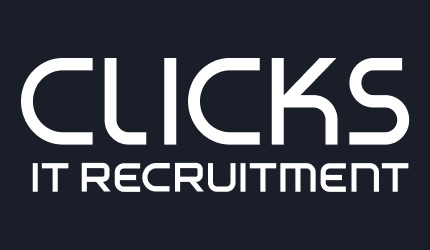Top Tips that Cover Everything You Need to Know
It’s hard to attend an interview these days without answering a behavioural based interview question. We know because Clicks conducts and arranges hundreds of interviews across Australia every week. Whether you need a quick brush-up or a bit more practice, we hope these tips help nail your next interview.
What is a behavioural-based interview?
A behavioural interview is a structured interview that collects information about past behaviour. It is a commonly used type of question, as past performance has been shown to be a reliable predictor of future behaviour. The questions asked are open-ended. Each is designed to help the interviewer learn about your skills and experience in a specific competency related to the position. While behavioural interviews were traditionally conducted face-to-face, video interviews are now also commonplace.
Using the STAR technique
A good way to structure your response in a behavioural interview is to use the STAR technique. Framing your answers in an organised manner helps you clearly articulate your relevant skills and experience. It helps the interviewer too. They can easily follow along and learn how your past performance is relevant to the behaviours and skills they are seeking. The STAR technique involves structuring your response as follows:
- What was the Situation in which you were involved?
- What was the Task(s) you needed to accomplish?
- What Action(s) did you take?
- What Results did you achieve?
Candidates often make the mistake of spending too much time talking about the Situation. While it’s important to set the scene, the interviewer is most interested in learning about what you did. So, make sure you move quickly and spend more time outlining your Actions and Results. Another top tip is the results from the example you share can sometimes fall short of what you were hoping to achieve. In this instance, don’t fudge the results. Be honest and share what you have Learnt and how you would do things differently next time. Sometimes things don’t go according to plan – being candid and demonstrating a growth mindset establishes trust and credibility.
Examples of behavioural based interview questions
To help you prepare, we’ve put together some commonly asked behavioural based interview questions.
- Give me an example of a time when you surpassed a stakeholder/client/customer’s expectations
- Tell me about a time when you were on a team, and one of the members wasn’t doing his or her share
- Please give me an example of a time when you took the initiative to improve a specific work process
- Give me an example of a time when you had to make a split-second decision
- Tell me about a time when you felt a need to update your skills or knowledge in order to keep up with the changes in technology. How did you approach that?
- Describe a time when you had to use logic and good judgement to solve a problem
- Describe a time when a stakeholder/client/customer got angry with you. What was your response?
- Give me an example of a time when you used your fact-finding skills to solve a problem
- Describe a time when you put your priorities aside to help a co-worker. How did you assist them? What was the result?
- Tell me about a time when a stakeholder/client/customer requested special treatment that was out of the scope of normal procedures. What was the situation and how did you handle it?
Now that you can see the questions, here are is an example of what the interviewer wants to know, and how you might provide a strong response.
What they’re asking:
- Tell me about a time when you had to cope with a stressful situation
What they really want to know:
- How resilient you are. Was the situation that caused you stress something extremely stressful, or should you have been able to navigate it without becoming stressed?
- How you behave under pressure. Some of us shut down, some of us become emotional etc. This will inform how a manager can best support you if you face stressful situations in the job you’re interviewing for.
- Your initiative and accountability in managing the situation. Did you throw your hands in the air and immediately seek help, or did you use all the resources available to seek a solution before escalating?
How to respond:
- I was in a project team of four people to deploy a software upgrade. I was responsible for the final testing before deployment to a Department of 5,000 people. We had to deploy the software at short notice and my manager was on leave. I tested it and everything looked great, so we deployed. Once the software was deployed into our production environment, we realised it didn’t work on a Bing browser. I’d forgotten to test Bing, and picked it up when I did the post-deployment tests. I immediately informed my team, and we decided to roll back the deployment, even though we don’t use Bing as our main browser. My colleague organised a fix from the software vendor and we redeployed without any issues. Luckily it was on a Sunday, so there was no impact to our users. It was pretty stressful. As a result, I suggested a process of getting two people to check the test schedule before any deployments, and that has worked really well.
Why this is a good answer:
- Explains exactly what role you played and the scope of the situation.
- Provides timeframes.
- States the potential impact of your mistake, which provides context that it is reasonable for you to feel stress..
- Walks through your problem-solving process and its outcome, including you taking an informal leadership role.
- Shows initiative because you implemented a way to make sure you wouldn’t find yourself in the same situation again.
- Succinct. Don’t provide any more or less information than required to make your case.
Use the above formula and logic to apply to the other behavioural questions listed. Think about which examples you’ll use and how you’ll state your case optimally at your next interview.
For advice on other job-seeking topics, check out the resources we’ve put together to help you land your next role. Did you know the recruiters at CIicks have on average 12 years of industry experience? We provide interview coaching for all candidates prior to their interviews with our clients and our expertise helps them land jobs fast!
Clicks is on over 80 Preferred Supplier Agreements. That means we work with some of the most sought-after employers nationally and have new opportunities all the time. If you are on the market for your next IT opportunity, take a look at our hot jobs to see what’s currently available. You can also register with Clicks via the Job Seekers page on our website. If you know an IT professional looking for work we have a fantastic referral program that can earn you $500 for every great person you send our way. All the best with your interview!









